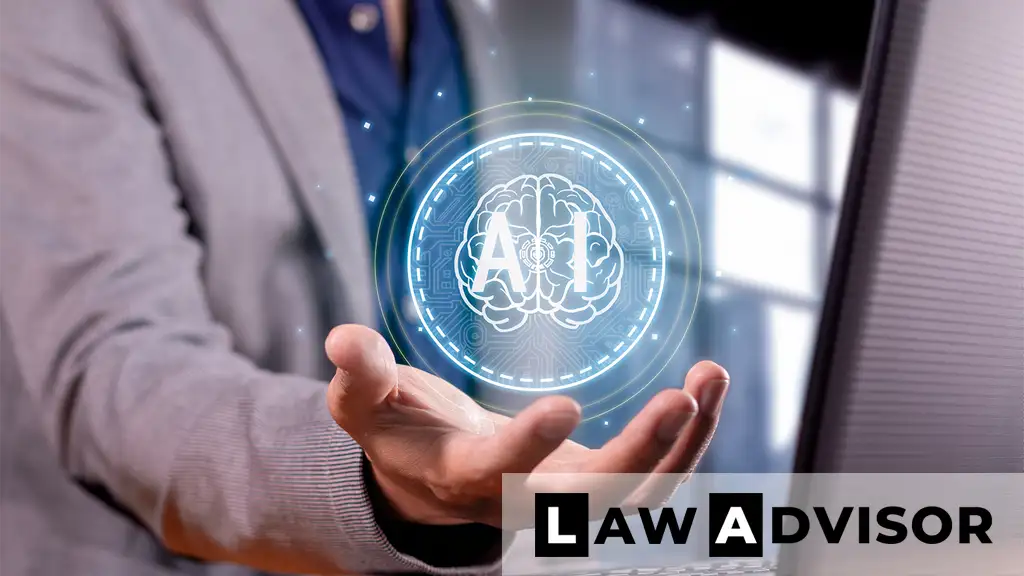Artificial Intelligence (AI) is transforming how small businesses operate — from automating customer service to analyzing data and streamlining workflows. But using AI without understanding the legal risks can backfire fast. If you’re wondering how to legally use AI in your small business, this guide breaks it down so you can benefit from AI technology without landing in legal trouble.
From data privacy laws to intellectual property risks and discrimination concerns, we’ll show you what to watch for and how to stay compliant while making AI work for you.
What Legal Issues Come with AI Use?
AI tools may feel like plug-and-play, but their use brings serious legal exposure. Key risk areas include:
- Data privacy violations
- Employment and discrimination claims
- Intellectual property infringement
- Contract liability
- Consumer protection violations
Many small business owners assume using a third-party AI tool shifts all legal responsibility to the vendor — but that’s not always true. If your business deploys AI in a way that harms users, employees, or competitors, you can be held liable.
Understand the Data You’re Using
AI often relies on data input — customer behavior, internal documents, emails, or user feedback. But where did the data come from, and do you have a legal right to use it?
To avoid violating privacy or data protection laws:
- Get consent from users before collecting or processing personal data
- Use anonymized data whenever possible
- Comply with regulations like the GDPR, CCPA, or your local privacy laws
- Avoid scraping or using third-party datasets without clear licenses
If your AI tool trains or generates results using personal or proprietary data, you need policies to ensure lawful use and retention.
AI in Hiring and HR: Watch for Discrimination
Using AI to scan résumés, rank candidates, or assess interviews? Be careful. AI hiring tools can unintentionally discriminate based on gender, race, disability, or age — even if you don’t program them to.
To stay compliant:
- Ensure tools are transparent and audit their criteria regularly
- Avoid fully automating hiring decisions — keep humans in the loop
- Comply with Title VII of the Civil Rights Act, the ADA, and state anti-discrimination laws
- Document your hiring practices and retain logs of AI decisions
The EEOC has started scrutinizing AI use in employment. Don’t assume software will protect you from bias claims — courts hold employers accountable.
Disclosing AI Use to Customers
If your small business uses AI chatbots, automated emails, or predictive systems, you might be legally required to inform users they’re interacting with AI.
Certain states, like California, now require disclosure of AI or bots in sales and service interactions. Failure to do so could result in:
- False advertising claims
- Breach of contract disputes
- Customer trust issues
A clear “Powered by AI” notice on your website or chat tool isn’t just good ethics — it may be legally necessary.
Avoiding Intellectual Property Infringement
One of the biggest risks when using generative AI is copyright violation. AI tools that generate:
- Blog posts
- Images
- Code
- Product descriptions
…may be trained on copyrighted material — and if you publish that output as your own, you could be infringing without realizing it.
To avoid lawsuits:
- Use tools with clear commercial-use licenses
- Don’t remove attribution if the platform requires it
- Fact-check and edit AI outputs before publishing
- Consult an attorney before using AI to generate logos, slogans, or brand content
Also, be cautious about reverse infringement — if your AI tool is trained on your data, you may be licensing your own intellectual property away without realizing it.
Vendor Contracts: Read the Fine Print
If you’re using AI tools provided by a third party (like OpenAI, Jasper, or Grammarly), check their:
- Terms of service
- Privacy policies
- Licensing agreements
You need to know:
- Who owns the content generated?
- Who is liable if the AI makes a mistake?
- What happens if the data is breached?
Clarifying these issues can protect you in case something goes wrong — especially when AI outputs are used in customer-facing ways.
AI in Customer Service: Protect Consumer Rights
AI-powered chatbots and auto-response systems are great for efficiency, but they can accidentally:
- Give false or misleading information
- Miss emergency situations
- Violate consumer protection laws
Make sure:
- Customers can escalate to a human quickly
- AI doesn’t give legal, medical, or financial advice without disclaimers
- You have logs of conversations in case of disputes
Under the Federal Trade Commission (FTC), you may be liable for misrepresentations made by your AI tools — even unintentionally.
Create an AI Use Policy for Your Business
Creating an internal AI use policy is a smart way to protect your small business. Your policy should include:
- What AI tools are allowed and who can use them
- Where data comes from and how it must be handled
- What content needs review before publication
- Who is responsible for monitoring and compliance
This is especially important if you have employees or contractors using AI tools for sales, marketing, HR, or operations.
Should You Trademark or Copyright AI-Generated Work?
There’s legal uncertainty about whether AI-generated content can be copyrighted — especially if it’s not modified by a human. The U.S. Copyright Office has stated that works made entirely by AI are not eligible for protection.
To protect your business:
- Heavily edit or customize AI outputs
- File trademarks for names, logos, and slogans you use commercially
- Use NDAs and contracts to protect sensitive business material
Until copyright law fully evolves, treat AI-generated work as legally vulnerable, and don’t assume it’s automatically protected.
🧠 You May Wanna Check Out:
- What Is a Non-Disclosure Agreement (NDA) and When Should You Use One?
- What Is Business Liability Insurance and Why It Matters
- Top 10 Legal Mistakes Small Business Owners Make (And How to Avoid Them)
Final Thoughts
Knowing how to legally use AI in your small business can mean the difference between innovation and litigation. While AI brings exciting efficiency and scalability, it’s not a legal free-for-all. Take time to review your tools, your data sources, and your responsibilities under the law.
If you’re unsure whether your current AI use is compliant, speak with a business attorney or check out FTC’s Guidance on AI Use in Business.




